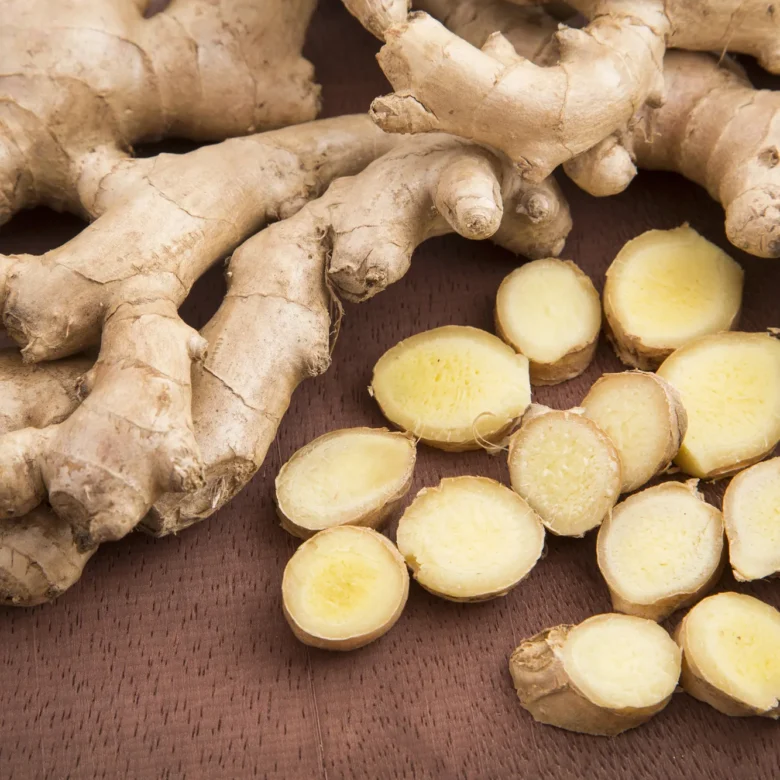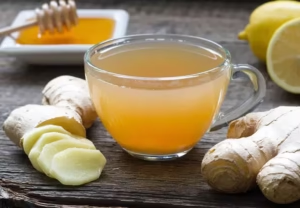Ginger tea has been a beloved natural remedy for centuries, known for its digestive health benefits, anti-inflammatory properties, and ability to soothe various stomach-related issues. Whether you’re struggling with indigestion, nausea, bloating, or gas, ginger tea is a comforting and effective way to help alleviate discomfort and promote overall digestive health.
In this comprehensive guide, we’ll walk you through everything you need to know about making ginger tea at home, from its health benefits to different variations and how to incorporate it into your daily routine.
Why Ginger Tea is Good for Your Digestive Health
Ginger, the root of the Zingiber officinale plant, has long been used in traditional medicine for its healing properties. It’s especially popular in Ayurveda and Chinese medicine, where it’s been used to aid digestion and treat nausea.
Some of the key reasons ginger tea is beneficial for digestive health include:
1. Relieves Nausea and Vomiting
Ginger has natural antiemetic properties, which means it can help reduce nausea and prevent vomiting. This is particularly useful for those experiencing morning sickness during pregnancy, nausea after chemotherapy, or motion sickness.
2. Eases Indigestion and Bloating
Ginger has the ability to increase the speed at which food moves through the stomach, making it an effective remedy for indigestion and bloating. It helps relax the muscles of the digestive tract and stimulates the production of digestive enzymes, which can improve overall digestion.
3. Reduces Gas and Improves Digestion
The carminative properties of ginger help relieve excess gas and bloating, which is often caused by poor digestion. By stimulating the flow of bile, ginger can improve the breakdown of food in the stomach, allowing your digestive system to work more efficiently.
4. Relieves Stomach Cramps
Ginger has natural anti-inflammatory and analgesic properties, which can help alleviate stomach cramps and discomfort associated with indigestion, gas, or an upset stomach.
5. Improves Gut Health
Ginger is a prebiotic, which means it helps nourish and stimulate the growth of healthy gut bacteria. A balanced gut microbiome is essential for digestion and overall health, and ginger can support this balance.
How to Make Ginger Tea: A Step-by-Step Guide
Making ginger tea is simple and only requires a few ingredients. Below is a basic recipe, along with a couple of variations to suit your personal preferences and health needs.
Basic Ginger Tea Recipe
Ingredients:
- 1-inch piece of fresh ginger root
- 2 cups of water
- Honey or lemon (optional, for taste)
- A pinch of cayenne pepper (optional, for added digestive benefits)
Instructions:
- Peel and Slice the Ginger: Begin by peeling a 1-inch piece of fresh ginger root using a spoon or a knife. Slice it thinly to increase the surface area, which will help release the active compounds during steeping.
- Boil the Water: In a small pot, bring 2 cups of water to a boil over medium heat.
- Add the Ginger: Once the water is boiling, add the sliced ginger to the pot. Reduce the heat and allow the ginger to simmer for about 10–15 minutes. The longer you simmer, the stronger the flavor and medicinal properties.
- Strain the Tea: After 10-15 minutes, remove the pot from heat. Use a fine mesh strainer to strain the tea into a mug, discarding the ginger pieces.
- Add Sweeteners and Flavor (optional): If desired, add a teaspoon of honey for sweetness and lemon juice for extra flavor and a boost of vitamin C. Some people also like to add a pinch of cayenne pepper for an additional digestive kick.
- Serve and Enjoy: Your fresh ginger tea is now ready to drink! You can enjoy it immediately while it’s still warm, or let it cool for a refreshing iced version.
Ginger Tea Variations for Different Digestive Issues
While the basic ginger tea recipe is highly effective for soothing digestive discomfort, there are a few variations you can try depending on your specific symptoms.
1. Ginger and Peppermint Tea
Both ginger and peppermint are excellent for calming an upset stomach, relieving gas, and reducing bloating. Peppermint contains menthol, which helps relax the muscles of the gastrointestinal tract, improving digestion.
Instructions:
- Follow the basic ginger tea recipe, but add a handful of fresh peppermint leaves to the water along with the ginger slices.
- Alternatively, you can use peppermint tea bags for convenience. Allow it to steep for 5-10 minutes along with the ginger, then strain and enjoy.
2. Ginger and Turmeric Tea
Turmeric, like ginger, has powerful anti-inflammatory properties. It is commonly used to help with digestive disorders like irritable bowel syndrome (IBS), gastritis, and acid reflux.
Instructions:
- To the basic ginger tea recipe, add 1/4 teaspoon of ground turmeric or a small piece of fresh turmeric root along with the ginger slices.
- Let it simmer for 10-15 minutes, then strain and enjoy.
- For additional flavor, you can also add a pinch of black pepper, which enhances the absorption of curcumin (the active compound in turmeric).
3. Ginger and Lemon Tea
Lemon is a natural alkalizer, and it helps to support the digestive system by stimulating liver function and improving bile production. Pairing lemon with ginger enhances digestion and helps soothe an upset stomach.
Instructions:
- Follow the basic ginger tea recipe, then add fresh lemon juice to taste after straining the tea.
- You can also garnish with a lemon slice for extra flavor.
- The vitamin C in lemon also helps boost your immune system, making this a great remedy for overall health.
4. Ginger and Fennel Tea
Fennel seeds are well-known for their ability to alleviate gas, bloating, and indigestion. When combined with ginger, fennel makes for a powerful digestive tonic.
Instructions:
- Add 1/2 teaspoon of fennel seeds to the boiling water along with the ginger slices.
- Let it simmer for about 10 minutes, then strain and enjoy.
- Fennel can help relax the muscles in the gastrointestinal tract, promoting smoother digestion and reducing bloating.
5. Ginger, Cinnamon, and Honey Tea
Cinnamon is another spice with digestive benefits, including the ability to reduce bloating, improve circulation, and regulate blood sugar levels. This version of ginger tea provides a warming, comforting drink, especially on cold days.
Instructions:
- Add 1 cinnamon stick or 1/2 teaspoon of ground cinnamon to the boiling water with the ginger slices.
- After straining, add honey to taste, which not only adds sweetness but also has antibacterial properties to help support overall gut health.
How Often Should You Drink Ginger Tea for Digestive Issues?
For most digestive issues, drinking ginger tea 1-3 times a day can provide noticeable relief. Here’s how often you can drink it depending on your needs:
- For nausea or morning sickness: Sip on ginger tea as needed throughout the day to help calm your stomach.
- For indigestion, bloating, and gas: Drink a cup of ginger tea 30 minutes before meals to promote better digestion or after meals to ease any discomfort.
- For general digestive health: You can enjoy ginger tea once a day as a preventative measure to maintain digestive health.
Always listen to your body and adjust the amount based on your needs. If you’re new to ginger, start with a small amount and gradually increase the dosage to avoid any potential side effects.
Potential Side Effects and Precautions
While ginger is generally safe for most people, there are a few considerations:
- Heartburn: For some individuals, ginger may exacerbate acid reflux or heartburn, particularly when consumed in large amounts. If you suffer from frequent heartburn, try limiting ginger to smaller amounts or avoid it entirely.
- Blood Thinners: Ginger may have a mild blood-thinning effect. If you’re on blood-thinning medication, consult with your healthcare provider before consuming ginger regularly.
- Pregnancy: Ginger is generally considered safe during pregnancy, but large amounts may cause issues for some women. Always consult your doctor if you’re pregnant and considering ginger tea as a remedy.
Conclusion
Ginger tea is a natural and effective remedy for a variety of digestive issues, from nausea and bloating to gas and indigestion. With its anti-inflammatory properties and ability to support digestion, ginger is an excellent choice for anyone looking for a soothing, natural alternative to over-the-counter digestive aids.
Making your own ginger tea at home is easy, and with various combinations such as turmeric, lemon, or peppermint, you can customize it to fit your specific needs. By incorporating ginger tea into your routine, you can enjoy its many digestive benefits and promote overall gut
health.
Whether you’re looking to soothe occasional stomach discomfort or improve long-term digestive function, ginger tea can be your go-to, natural remedy.




